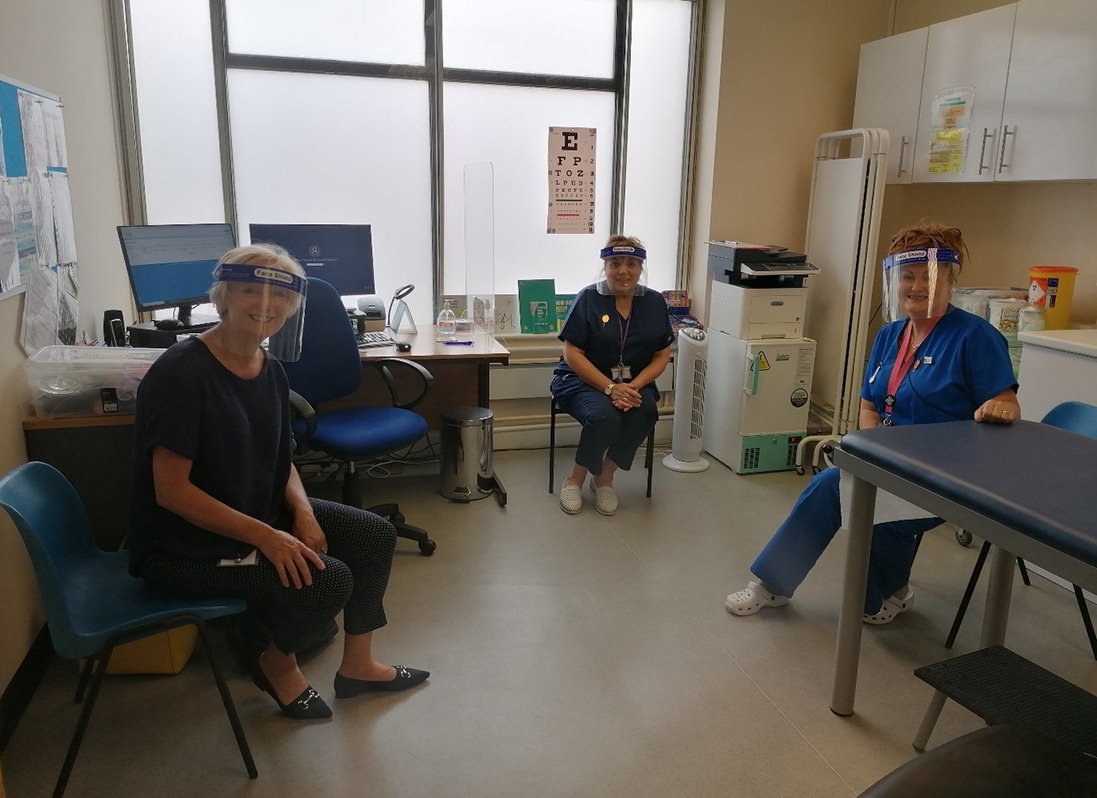On the 6th of August 2020 Ruth May attended Beacon House to explore the role of Inclusion Health Nurses, and the unique challenges and opportunities that present when providing nursing care in the UK, for homeless populations.
Beacon House based in Colchester in Essex, provides a full range of primary healthcare services to people experiencing homeless in a day centre setting. This includes drop-in clinics, vaccination, sexual health screening, BBV screening and needle exchange, occupational therapy and podiatry. The day centre also offers a wide variety offers practical help, personal development opportunities as well as food / showers / laundry etc. www.beaconhouseministries.org.uk/
Ruth learned about the work of inclusion health nurses during her visit. Examples of nurse-led innovation at Beacon House include:
- our new cervical screening hub, offering females ‘drop in’ screening after they have had lunch
- provision of a smoking cessation service, with respiratory assessments for identifying new patients with COPD
- the use of a ‘day bed’ with nurse supervision for those who would be at risk of trauma, or attending A&E, particularly those with substance misuse issues
During Covid-19 many of the routine services have continued, although some of the drop-in activity has obviously been reduced. However, the nurses have also been undertaking increased work to support the work of the ‘Everyone In’ programme and have provided a triage point for referrals into appropriate accommodation.
During the visit Ruth listened to, and discussed the following messages on behalf of all inclusion health nurses:
- The significant role pre-registration education has in improving the quality of care to people experiencing homelessness and other inclusion health groups. We discussed that student nurses should all be exposed to the role of the inclusion health nurse via their universities and should develop an understanding of the needs of these groups. We were able to share the excellent ‘Transition to Homeless Nursing’ publication produced by the QNI as an example of an effective resource we use with our students on placement
- The ongoing need for funded nurses / specialist teams with knowledge of homelessness and inclusion health to be commissioned and supported to deliver the care that meets the often unique needs of these groups – offering a ‘one shop opportunistic’ approach where possible.
- The cost benefits of outreach in identifying underlying /undiagnosed chronic diseases within inclusion health populations and avoiding unscheduled admissions.
- The feelings of isolation and burn out that inclusion health nurses can experience, if they don’t get adequate support
- The lack of specific CPD / support available
- The need for inclusion health nurses to network, and the value of the QNI network, and being able to attend events specific to our specialism. We cited the example that at the last conference event, a homeless health nurse specialist had identified an upsurge in non-healing wounds within the population of people experiencing homelessness and also injecting, which had turned out to be Group A strep. Her innovative practice and sharing at conference, led to us swabbing more routinely, and we have since had 2 positive Strep A results.
- The bespoke needs of inclusion health groups during Covid – 19 – e.g. the unhelpfulness of the ‘go home and isolate’ materials. We highlighted the excellent work that both Pathway https://www.pathwaorg.uk/ and Groundwell https://groundswell.org.uk has done in addressing these needs.
Ruth shared her desire for the homeless clients themselves to be helped to explore roles within the NHS to fulfil the current employment drive. We were able to discuss the preparation and support required to help people into volunteer posts, that is provided by our OT teams.
Ruth May left us feeling supported and valued, and more importantly listened to. She shared with us the recent creation of a Homeless Health Nurse Lead in NHS England, which will give voice to inclusion health nurses with the Government. She has also committed to returning for a further visit when we have our next student nurse placements to show her support in the value of training nurses within our field.
Our Chief Nurse Lead Lisa Nobes for NEECCG, and Mark Shorter Transition Lead were also in attendance during Ruth’s Visit, and were very supportive of our service.
We are now so excited to see how the Government’s support for Homeless and Inclusion Health nursing in the UK is going to develop, and hope we did a small bit to demonstrate the passion and motivation that we know is shown by the whole sector.
Michelle Wilkinson, Queen’s Nurse
 Back to Resources
Back to Resources 
